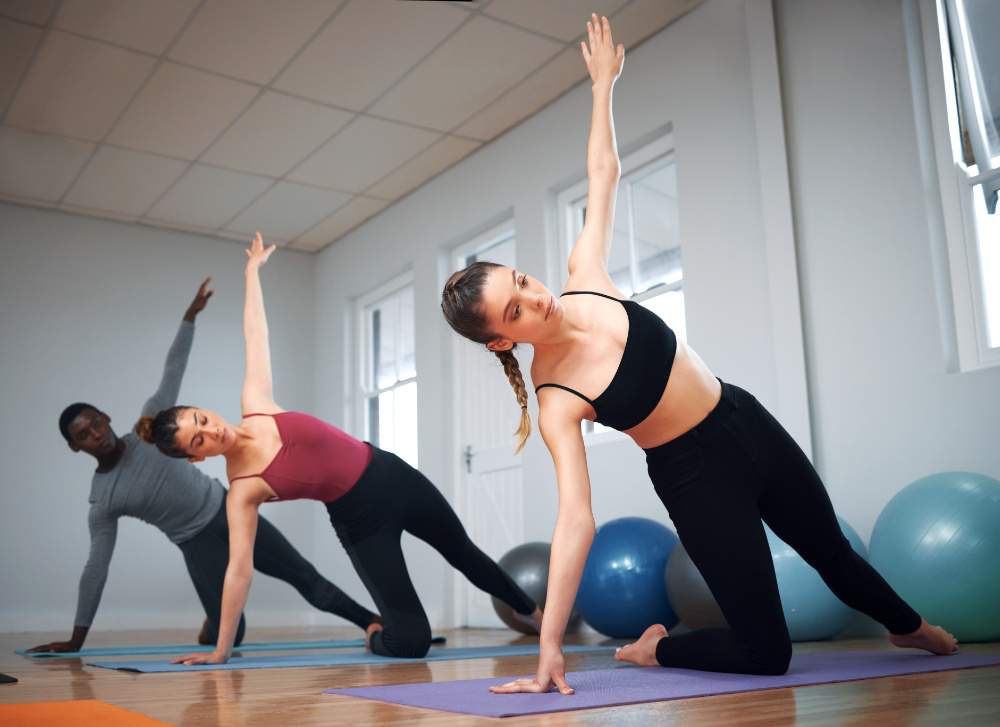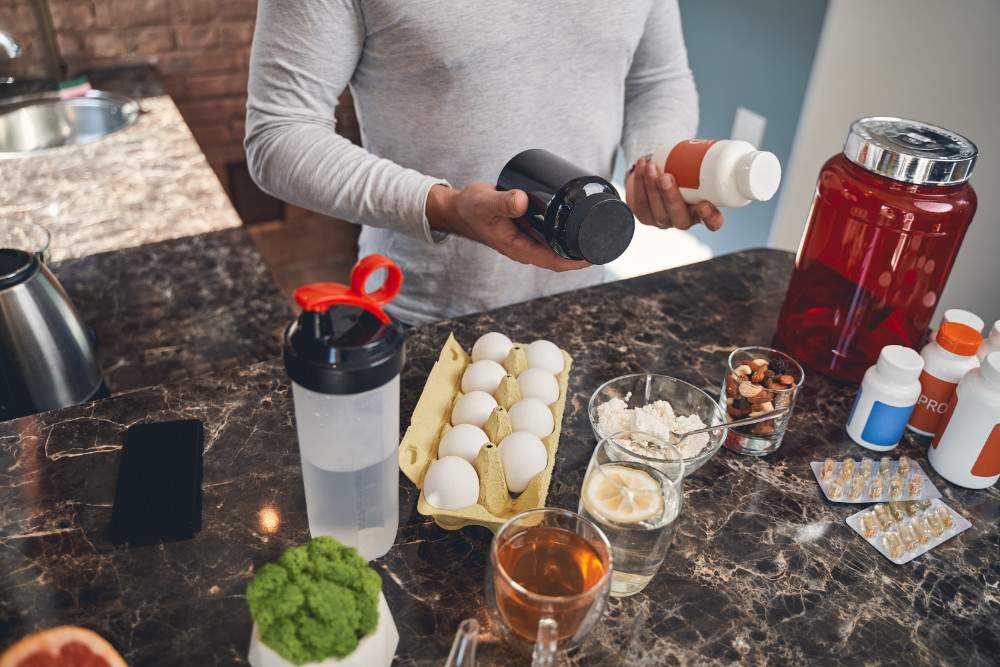Dietitian Jessica Spendlove looks at the different goals for pre-event, during event and post-event nutrition, and the role sports drinks can play in achieving these.
Sports drinks can play a vital role in pre-event, during event and post-event nutrition, in sustained high intensity exercise lasting 45 minutes or more and endurance exercise lasting greater than 60 minutes1. Nutritional requirements at these three different stages vary, so it is important not to have a one-size-fits-all approach, as this will not optimise performance. The benefits of using sports drinks have long been researched and it has been proven that, in the correct sporting situation, they can enhance performance2.
Sports drinks are essentially a combination of fluid, carbohydrates and electrolytes2-3. Their primary aim is to keep the individual adequately hydrated and fuelled. They have also been formulated to drive thirst mechanisms, help reduce sweat and urine losses, assist with muscle contraction and prevent cramping1-4. Overall, they have been designed to enhance athletic performance. The following information highlights the different goals for pre-event, during event and post-event nutrition, and identifies the role sports drinks can play in achieving these.
Before the event
The nutrition goals pre-event are:
- Adequate hydration
- Adequate carbohydrates
- Top up muscle glycogen.
- Adequate hydration
Adequate hydration in the days leading up to an event is important to assist with performance4-6. Checking the colour of your urine the day before, as well as the day of, competition is a good idea. You want to see a pale yellow colour, indicating adequate hydration.
Adequate carbohydrates
Depending on the event, you may have increased your carbohydrate intake for between one and three days prior to competition (carbohydrate loading), or you may only require a carbohydrate rich meal two to four hours before your event4-5.
Top up muscle glycogen
Assuming you are adequately hydrated and fuelled pre-event, you should aim to consume between 300 and 450ml of carbohydrate-rich fluid in the final hour before your event4-5. This provides the body with a final source of fluid and, importantly, glucose, which can be easily accessed and used by the working muscles. Consuming a sports drink, such as Gatorade, which contains sodium, can help stimulate thirst and reduce urine and sweat losses4-5.
During the event
The nutrition goals during the event are:
- Optimal fluid delivery
- Optimal carbohydrate (fuel) delivery.
As the body only has enough stored fuel (glycogen) to last for approximately 60 minutes of high intensity activity, you will need to provide your body with external sources of fuel if you want to continue performing at the same intensity for longer periods of time1,4. It was this challenge that lead to the development and formulation of standard sports drinks.
During an endurance event lasting less than 60 minutes, sports drinks are not necessarily required providing glycogen stores have been adequately topped up pre-event. However, some research has found performance enhancements for individuals who have swirled sports drinks in their mouth during the event7, which may be something to consider for more serious competitors.
For an event lasting longer than 60 minutes (soccer, half marathon, Olympic distance triathlon, basketball, marathon etc), sports drinks are a vital means of providing fluid and electrolytes (sodium and potassium) to help with hydration status4,6,8. They are also a means of providing carbohydrate for the muscles to use for fuel, as the stored glycogen runs out4,6,8.
It has been found that some sports drinks with more than 8 per cent carbohydrate concentration (i.e. 8g per 100ml) can cause GI distress, so aim for one between 4 and 8 per cent, such as Gatorade, to be on the safe side4,8. Check the nutrition information label, and, if in doubt, speak with a sports dietitian. When it comes to event day, it is always recommended to use a product you are familiar with, and have practiced with in training.
After the event
The nutrition goals post-event are:
- Replenish fuel (glycogen stores)
- Deliver protein for muscle repair
- Restore fluid and electrolyte imbalances.
Recovery nutrition is extremely important. It is crucial to replace what has been used, lost or damaged. If you do not have a good nutrition plan in place it can be hard to achieve these three goals as high levels of physical activity for extended periods of time can suppress appetite. For high intensity or endurance events lasting more than 45 and 60 minutes respectively, one should aim to replace:
- 1.2g of carbohydrate for every kilogram of body weight4, 6,9
- 120 to 150 per cent of fluid losses within four to six hours post-event4, 6,9
- 20 to 30g of protein within the first 30 minutes post event4, 6,9
Sports drinks, such as Gatorade, can play a vital role in the recovery process by providing carbohydrate, fluid and electrolytes all in one. In addition, a source of rapidly digesting protein such as milk, yoghurt, chicken, ham or turkey should be consumed to assist with recovery.
The bottom line
Sports drinks can play a vital role in enhancing performance when used in the correct sporting situation. Nutritional requirements at various stages of an event differ, so it is important to not have a one-size-fits-all approach. For more detailed nutrition and hydration plans it is advisable to seek the guidance of a sports dietitian.
Australian Institute of Sport (2001). Sports Drinks (carbohydrate-electrolyte drinks). Found at www.ausport.gov.au/__data/assets/pdf_file/0004/464035/Sports_drinks_12-_website_fact_sheet.pdf
Australian Institute of Sport (AIS). AIS Supplement Group Classification System. Found at www.ausport.gov.au/ais/nutrition/supplements/classification_test
Sports Dietitians Australia. Sports Drinks Fact Sheet. Found at
www.sportsdietitians.com.au/resources/upload/110616%20Sports%20Drinks%20PV.pdf
American College of Sports Medicine, American Dietetic Association Dietitians of Canada (2009). Nutrition and Athletic Performance position stand. Medicine and Science in Sports and Exercise. 41 (3), pp 709 – 731.
Sports Dietitians Australia. Eating and Drinking Before Sport Fact Sheet. Fact Sheet www.sportsdietitians.com.au/resources/upload/110822%20Eating%20&%20Drinking%20Before%20Sport_PV.pdf
American College of Sports Medicine, Sawka MN, Burke LM, Eichner ER, Maughan RJ, Montain SJ, Stachenfeld NS (2007).
American College of Sports Medicine position stand. Exercise and fluid replacement. Medicine and Science in Sports and Exercise. 39(2) pp 377-90.
Chambers E.S, Bridge M.W & Jones D.A (2009). Carbohydrate sensing in the human mouth: effects on exercise performance and brain activity. Journal of Physiology. 587.8, pp 1779-1794
Sports Dietitians Australia. Fluids in Sport Fact Sheet. Found at
www.sportsdietitians.com.au/resources/upload/110517%20Fluids%20in%20Sport.pdf
Sports Dietitians Australia. Recovery Nutrition Fact Sheet. Found at www.sportsdietitians.com.au/resources/upload/120628%20Recovery_SD%20version.pdf

Jessica Spendlove
Jessica is an Accredited Practising Dietitian, Accredited Sports Dietitian and Nutrition Consultant specialising in sports nutrition, weight loss/management, bariatric surgery, healthy eating and chronic disease management. She is currently undertaking a PhD at the University of Sydney investigating dietary intake, supplementation usage, physiological and psychological aspects of health in natural body builders. She is also the consultant sports Dietitian for the Cronulla Sharks Football Club.


